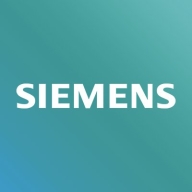

Polarion ALM and GitLab are competitors in the application lifecycle management and development operations sectors. While Polarion ALM is favored for its traceability and compliance features in regulated industries, GitLab's superior DevOps capabilities and CI/CD integration provide substantial benefits for agile environments.
Features: Polarion ALM offers customizable traceability, compliance management, and robust version control. GitLab excels in continuous integration, seamless deployment, and provides an all-in-one platform that simplifies workflows.
Room for Improvement: Polarion ALM could enhance its ease of use, reduce the complexity of its setup, and improve out-of-the-box functionalities. GitLab might expand its feature set, streamline its advanced settings, and enhance user onboarding processes.
Ease of Deployment and Customer Service: Polarion ALM requires expert configuration and longer setup times, though its customer service is reliable. GitLab offers easier deployment with cloud-based options and responsive support, facilitated by comprehensive documentation.
Pricing and ROI: Polarion ALM incurs higher initial costs but yields strong ROI in regulatory-focused environments. GitLab's scalable pricing model caters to various teams, offering faster ROI through integrated functionalities readily available upon setup.
| Product | Market Share (%) |
|---|---|
| GitLab | 28.6% |
| Polarion ALM | 4.1% |
| Other | 67.3% |


| Company Size | Count |
|---|---|
| Small Business | 35 |
| Midsize Enterprise | 9 |
| Large Enterprise | 42 |
| Company Size | Count |
|---|---|
| Small Business | 10 |
| Midsize Enterprise | 3 |
| Large Enterprise | 12 |
GitLab offers a secure and user-friendly platform for CI/CD pipeline management, code repository control, and collaboration, enhancing development speed and efficiency. It facilitates automation with extensive customization and tool integration, ideal for DevOps processes.
GitLab supports source code management, version control, and collaborative development. It's frequently used in CI/CD processes to automate builds and deployments while integrating DevOps practices. GitLab allows companies to manage repositories, automate pipelines, conduct code reviews, and maintain development lifecycles. The platform supports infrastructure and configuration management, enabling efficient code collaboration, deployment automation, and comprehensive repository handling. Many organizations commit and deploy developed code using GitLab's capabilities.
What are GitLab's most valuable features?In specific industries, GitLab serves as a backbone for source code management and CI/CD implementation. Companies leverage its capabilities for infrastructure management and deployment automation, thus streamlining project delivery timelines. Its ability to handle configuration management and code repositories effectively aids in maintaining development lifecycles, making it a preferred choice for organizations committed to enhancing their DevOps practices.
The world’s first 100% browser-based ALM enterprise solution, which enables seamless collaboration across disparate teams, multi-directionally linked work items, full traceability, accelerated productivity and automated proof of compliance.
We monitor all Enterprise Agile Planning Tools reviews to prevent fraudulent reviews and keep review quality high. We do not post reviews by company employees or direct competitors. We validate each review for authenticity via cross-reference with LinkedIn, and personal follow-up with the reviewer when necessary.